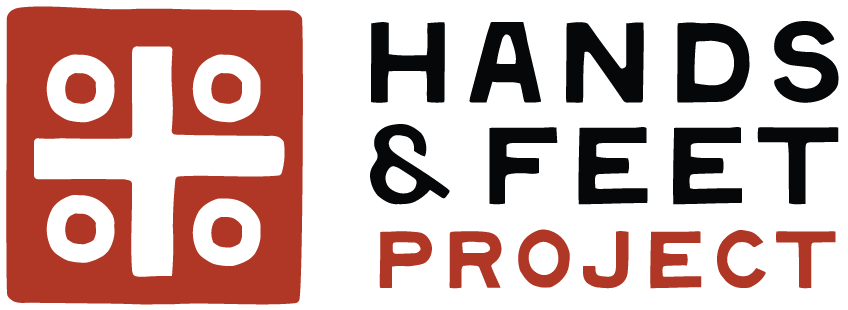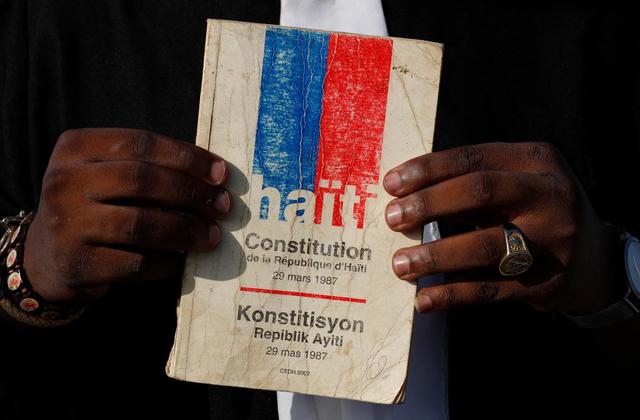
“We are hard pressed on every side, but not crushed; perplexed, but not in despair; persecuted, but not abandoned; struck down, but not destroyed.”

- The opposition party is demanding that President Jovenel Moïse step down from his position as president, saying that his five-year term ended on Sunday, February 7, 2021.
- President Moïse has said that he will not leave his office, asserting that an interim government occupied the first year of his term, which would make the end of his presidency February 7, 2022.
- Earlier this month, Haiti’s judiciary sided with the opposition party and ruled that President Moïse’s term ended in 2021.
- The opposition declared Supreme Court Judge Joseph Mécène Jean-Louis as interim president, after authorities arrested 23 people associated with a failed coup to install a different Supreme Court judge, Yvcikel Dabresi. President Moïse continues to assert that he is still the rightful president and has remained in office.
- Many fear that rising political tensions will worsen the state of the country, which already struggles with hunger, poverty, and lack of consistent power. This has fueled recurring clashes between protestors and the nation’s police force.
- President Moïse has ruled by presidential decree since last year, after suspending two-thirds of the Senate and the entire lower Chamber of Deputies. Haiti, with a population of 11 million people, has only 11 elected officials representing the entire nation. President Moïse has failed to hold any elections over the last four years of his presidential term.
- Sometime in the coming months, President Moïse is intending to expand his presidential powers by changing the country’s Constitution. A referendum on the new Constitution is scheduled for April 2021.
- Leaders of the opposition have stated that if President Moïse does not step down, the opposition will hold more protests and engage in civil disobedience.
- Since the start of the pandemic in early 2020, Haiti has only had 11,991 recorded cases and less than 250 deaths.
- However, with the increase in COVID cases across the world, Haiti’s Ministry of Health is now requiring that travelers show a negative COVID test taken within 72 hours of boarding a flight to Haiti. Many other countries, including the United States, are also currently requiring travelers to show a negative COVID test before traveling from Haiti.
- Dr. Jean-Hughes Henrys, who served on the president’s COVID-19 scientific commission, said while Haiti is not seeing a significant increase of COVID infections as previously anticipated, cases have been on the rise and the country will need to continue to take precautions.
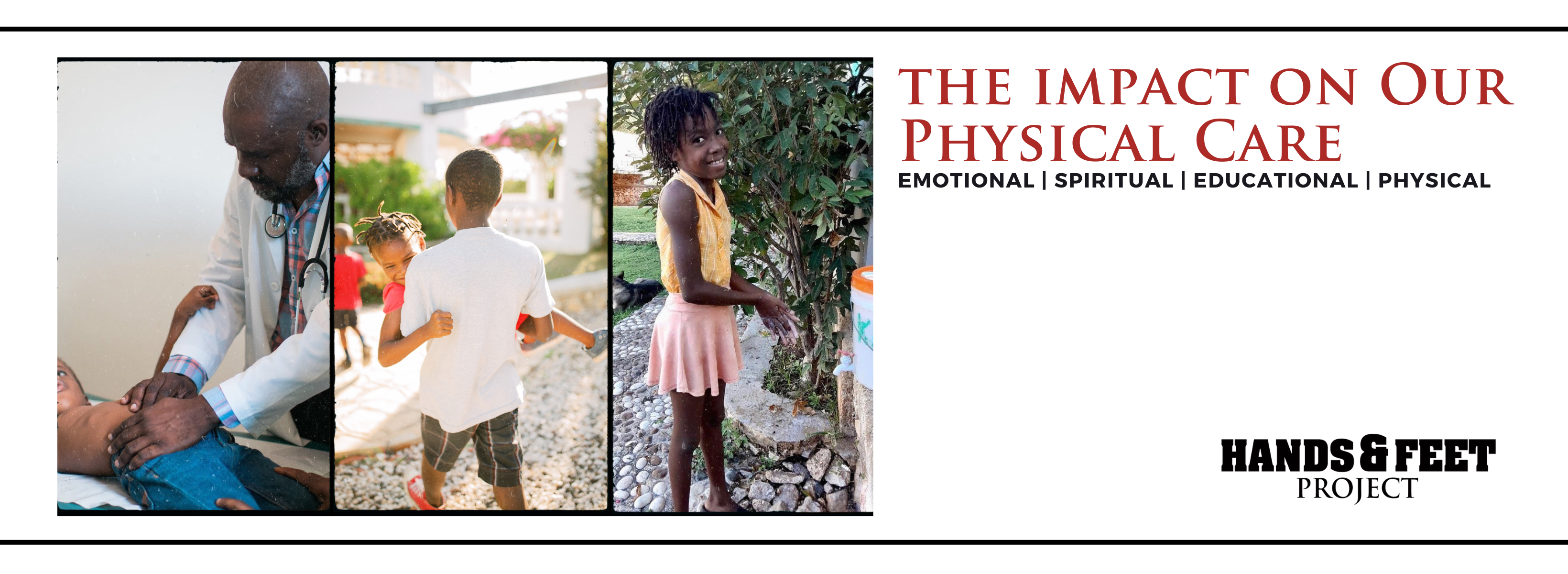
One of the most common manifestations of political and civil unrest in Haiti is through roadblocks, typically constructed by tires and large rocks in the middle of the road. As you might imagine, this makes it either very difficult, or even impossible, to travel to various parts of the community. This poses a challenge when it comes to physical care in terms of market runs and medical visits.In Haiti, there is little refrigeration and proper food storage. This means that many families make daily market runs to keep food on the table. Whenever roads are blocked, the food security of a family is jeopardized (especially if they are lower income).
When it comes to necessary medical visits, roadblocks mean that nursing, medical, and pharmacy staff are often not able to get to their hospitals and clinics to provide care to those in need. Sometimes unrest continues for months at a time, meaning that even routine medical visits become limited. Additionally, blocked roads mean that emergency medical visits may not always be possible.
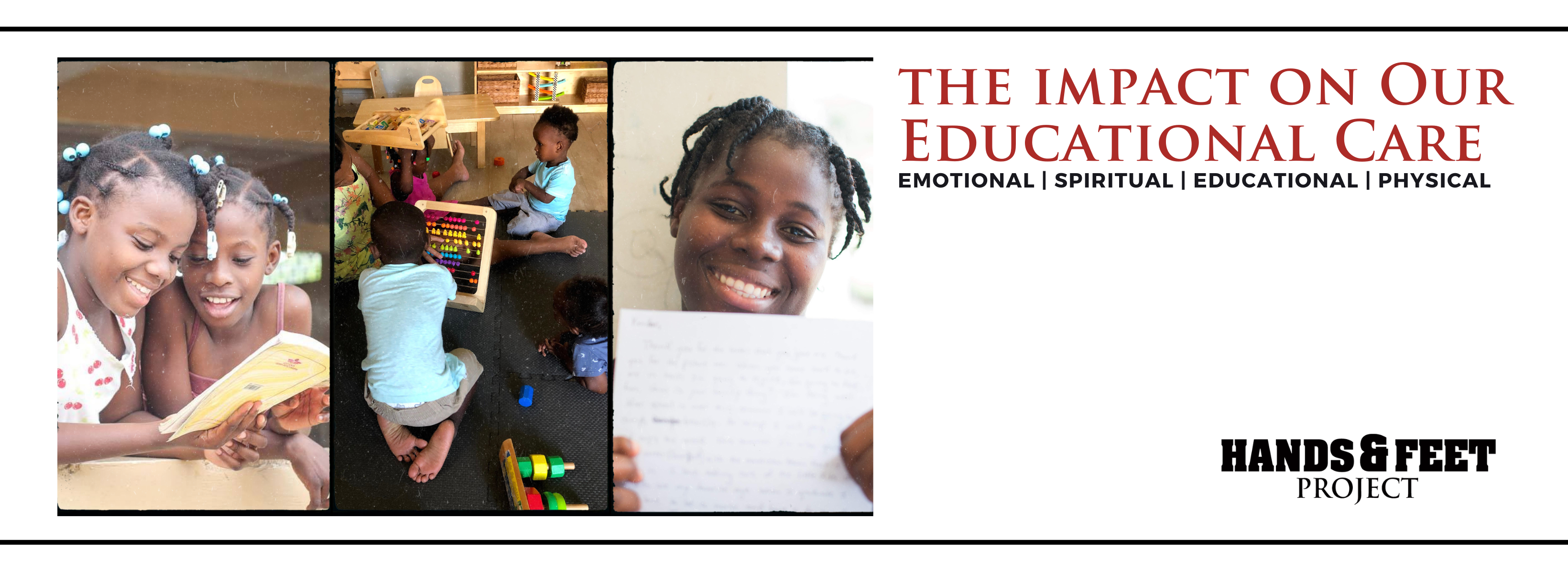
As we mentioned in the Physical Care section, roadblocks are common during periods of civil unrest. When roads to schools are blocked, this becomes a frequent barrier in the educational care of the children at Hands and Feet Project. Sometimes even schools themselves are closed due to unrest.Additionally, it is not uncommon for Haiti’s public transportation system across the country to be shut down, due to either strikes among the workers or the inability to navigate roads due to blocks. This has a direct impact on education because it means that teachers and administrative staff often aren’t able to get to schools.
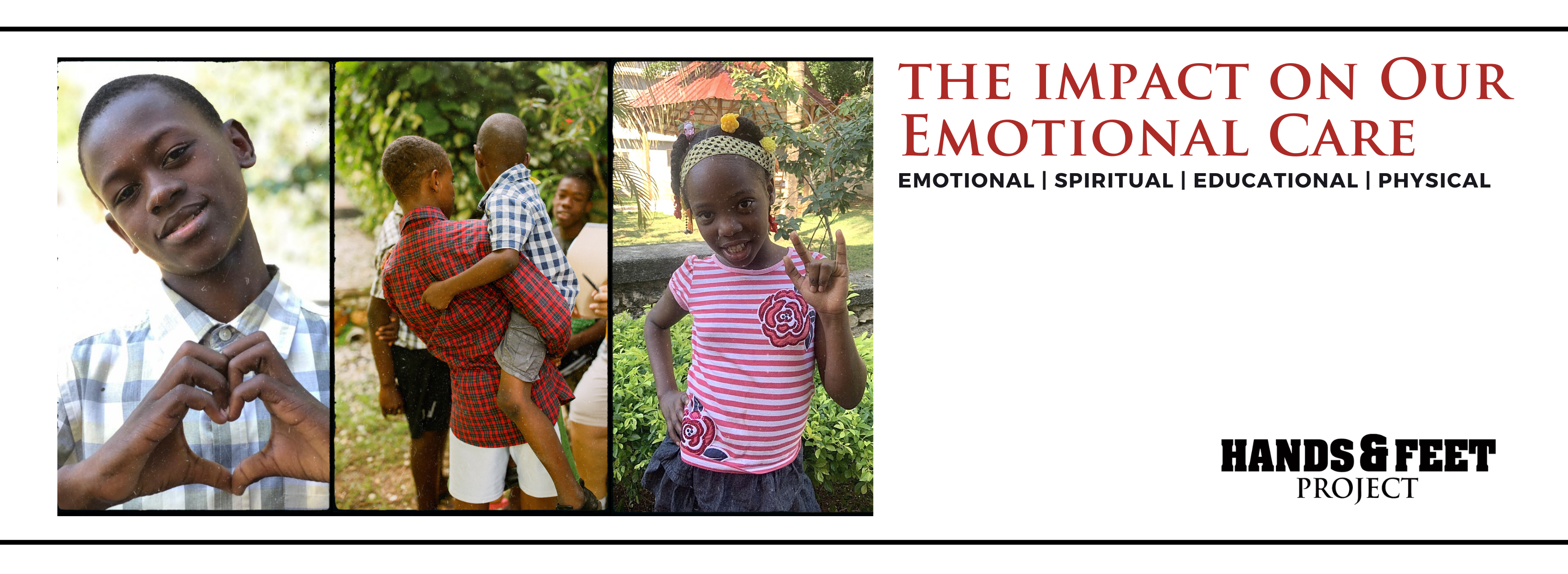
As you can imagine, when fear and anxiety are high in the life of children from hard places or hard circumstances, rational thinking and decision making is a challenge and can quickly spiral to unhealthy behaviors. Unhealthy behaviors quickly impact the fragile state of some of the families we are preserving and providing. With the state of the political climate and the effects of the COVID-19 pandemic, this adds another layer of trauma and complexity to the equation.We work hard to identify and name fear and anxiety, address it, and give our families the tools to cope with it. However, working to cope with fear and anxiety is an ongoing challenge in our ministry. We believe wholeheartedly in the importance of emotional care, especially with the children and families supported by Hands and Feet Project who have experienced trauma. Despite the challenges that political unrest and COVID have brought to our mission, we are committed to pressing in and working toward high quality emotional care.

Just like with all of the other areas of our Circle of Care, political unrest and COVID have affected our spiritual care efforts in the form of roadblocks and church closures. An opportunity to get off campus and fellowship with believers outside of our own Hands and Feet Project community is important, especially for the teens in our care. Church provides wholesome recreation rarely found outside of the church in Haiti, friendships outside of our Hands and Feet Project community, and an opportunity for the children in our care to grow deeper in their faith.Additionally, being part of a group can help young people develop important personal and interpersonal skills. These include the ability to think critically and solve problems, and the assumption of personal and group responsibility. It can also help young people gain self-confidence and self-esteem. Spending time with their church family and gaining these essential skills is very important in the development of the children at Hands and Feet Project.
We believe that followers of Christ should be encouraged to continue to grow in their awareness of emotional health as a vital part of spiritual wholeness. The Church should be the safest place for a person to admit his or her brokenness, inside and out, and being in fellowship with a church community that will help this process is something that we pray each of the children at Hands and Feet Project will have.
